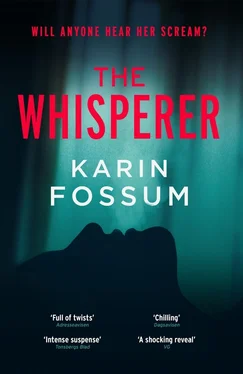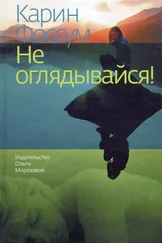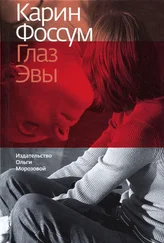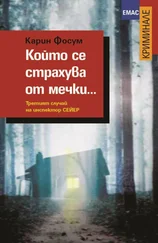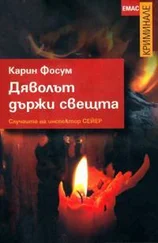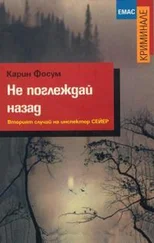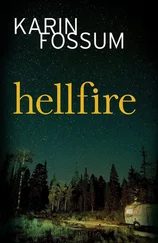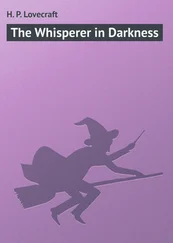‘Draw conclusions?’
She filled her lungs with so much air and was so fierce in her defence that he could not help but think of a pufferfish, the kind with poisonous spines. This little woman was a force to be reckoned with, after all, but he continued.
‘Does it frighten you?’ he asked. ‘The idea that you might be ill?’
‘I’m just saying it’s wrong.’
‘I can show you what we’ve found,’ he said.
‘I’ve answered your questions,’ she whispered. ‘I did what I did for obvious reasons, which I’ve talked about at length. For days, in fact. So I think we can agree that I’ve lived in fear and desperation all autumn. And that I spun a web to catch the intruder. And when a fly flew into the net and got stuck, and shook the whole fragile construction, I thought it was a poisonous wasp and stamped on it. There is no need for you to try and find another angle all of a sudden, what is the point of that?’
‘Everything has to be correct,’ Sejer said. ‘That’s the way our system works.’
‘I have never, in my life, explained myself as carefully, and in as much detail, and with as much honesty, as I have in my conversations with you,’ she snapped. ‘And still you’re not satisfied.’
He searched for the right words. What had he expected? That she would turn to him, innocent as a child, and whisper, oh, is that what’s wrong with me? I didn’t know, but that explains everything.
‘At some point in the future,’ Sejer said, ‘you will look back at everything that has happened. And you will be able to see it with an objectivity that is not possible today. Your experience will stay with you for the rest of your life. Now think carefully, are you willing to live with a lie?’
‘But I’m not lying! My intention all along has been to tell the truth.’
‘You have chosen the version that you can live with,’ Sejer said, ‘and that is perfectly understandable, that is how we are made.’
‘Then you’re living with a lie too,’ she said.
‘Yes,’ he admitted. ‘But I have not been accused of murder.’
Whatever it was that was growing in Ragna’s head was not a tumour. The thin, viscous branches that were spreading across her brain tissue could perhaps be treated with poison, or preferably a scalpel. This intruder was of a different nature. A misconception. Perhaps it had always been there, like a seed from her father. And it grew and it grew. An enemy had invaded her life. The enemy had watched her and terrorised her for a long time, robbed her of her sleep and of her senses, made her come undone. Ravaged her body and camped outside her house. Ragna had looked for him everywhere, she had looked for signs, and she had found them.
Sejer was crossing the pedestrian bridge over the river; he stopped halfway and stared down at the swirling current. Frank spotted a puppy and scrambled desperately to get closer, but Sejer held him back, and then walked swiftly on. Ragna Riegel filled his head and heart. They had possibly just had their last candid conversation. He had destroyed her trust in him by intimating that he doubted her reality. Like her illness, he had invaded her and confronted her. There was not really anything worse you could say to a person. She had refused to talk any more, and that was her right. Everything he had seen and heard throughout his working life ran through his head. The ones who made excuses, the ones who denied the crime, the ones who could not remember. The angry, the damaged and intoxicated, the mean and brutal and dull, the cynical and the less bright, the indifferent and the cowardly, the ones who blamed others, and there were plenty of those. Ragna was none of them. With her disability and history, she was both unique and vulnerable. The enemy had managed to get into her kitchen and press her into a corner. She had defended herself. To be on the safe side. Because she knew that finally someone would listen.
Sejer and Frank walked along the promenade to the main square. He thought about justice; there was not much of it in the world, and there was no order, no plan, no purpose. No reward in heaven, no green pastures. Just a swarming mass, where a few were granted happiness, but most were not. The believers prayed to God, and sometimes were heard, but more often they were not. Very few questions had clear answers, and as for the truth, well, it could be stretched like a rubber band. Ragna Riegel had attracted an enemy because for years she had lived in fear of having an enemy. Because she carried a heavy burden. Because she had a disability. Because she had seen her father sleep with the lights on and press his meagre body close to the wall. Because the authorities had been on their backs for years. Her father chose death. Because to him it seemed a safer place. And he was probably right.
They came to the square, with a thousand small lights in the chestnut trees, shining like diamonds. Everyone talks about the light, he thought, that’s where they long to be, that’s what they dream of. But some want to be in the dark, to remain unseen — that is where they feel safe. And yet, because they are not seen, they fall apart, they fall into their own trap, as it were. He heard music from somewhere in the distance, it sounded like sleigh bells, and he realised it would be Christmas in a few days’ time. He crossed the main bridge over to the south side of the river and walked all the way back to the station, with the river on his right now. He felt the icy wind on his cheeks as he passed the fire station, a northerly wind, sharp as a knife. It cut him to the bone and his face felt stiff and tight, and if anyone had seen him at close quarters, they would have thought he was a bitter man. He walked faster, they still had a lot to get through, if she wanted to continue at all. As he walked he mused on his own fate. He should have chosen another role in life, the role of defender. Instead, he was the one who held people accountable, who pushed and prodded and confronted. To make them confess, give evidence and repent. How different his life would have been if he had spent his days in court, thundering with clenched fists, as he fought like a lion to prove that his client, who was guilty, had had no alternative. That was what he wanted to do now. To stand up for Ragna Riegel. To be that lion. But I have never been a judge, Sejer thought, and I never will be. I understand people too well. Or, it occurred to him, I’m too much of a coward.
He shivered and walked, shivered and walked, his eyes trained on the icy pavement.
Dear Rikard Josef ,
Here I sit by the cell window and think of you. And about myself as well. How far do you think words can lead us? Can they bring us together again, will we meet again? I am not asking for much. But if I neglected you and did not give you what you needed, and in that way drove you from home, I ask for your forgiveness a thousand times over. I beg on my knees, because I am truly on my knees now. And if you cannot forgive me, that too I will bear, because I had not expected you to make contact at all. But you should know that I will never judge you, I just want to understand, in the same way that I hope to be understood. Everyone has their reasons, their motives and despair. All this talk of people having a choice. What does it mean? Does it mean that every person, in every society and in every situation, truly has a choice? And that they can make the right choice? Would it not be easy then to navigate the legal system? Would it not be easy to pass judgement and hand out punishment? Why then does the concept ‘extenuating circumstances’ exist at all, which allows for certain crimes to be judged differently or even dismissed? Does that not amount to an admission that many people do not have a choice?
Читать дальше
